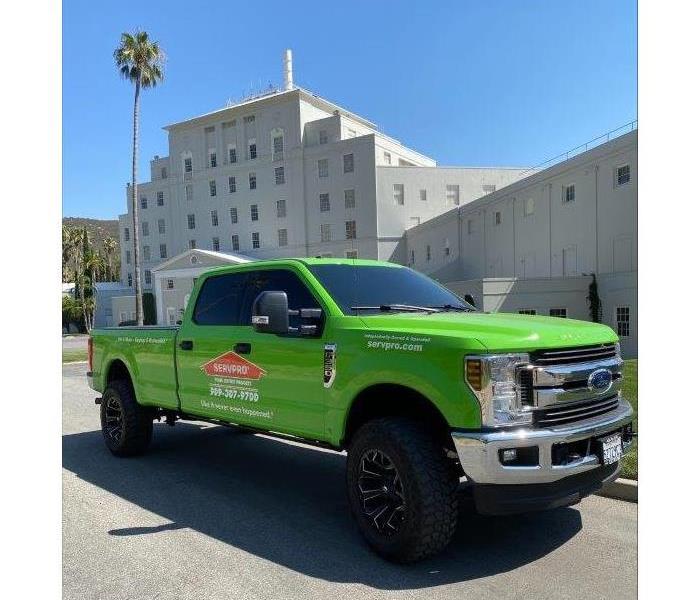7 Tips to Keep Your Commercial Kitchen Safe
4/17/2024 (Permalink)
 If you are in need of commercial fire damage cleanup and restoration, don't hesitate and give us a call!
If you are in need of commercial fire damage cleanup and restoration, don't hesitate and give us a call!
In a busy commercial kitchen, safety should always be a top priority. One of the most significant risks in any kitchen environment is the potential for fires, which can result in property damage, business interruption, and even personal injury. To protect your employees, customers, and property, it's essential to implement proactive measures to prevent fires. In this blog post, we'll explore practical tips to help you prevent commercial kitchen fires and maintain a safe working environment.
1. Invest in Quality Equipment
Investing in high-quality kitchen equipment can significantly reduce the risk of fires. Ensure that all appliances, such as stoves, ovens, and deep fryers, are well-maintained and in good working condition. Regularly inspect and service equipment to address any potential issues before they escalate into safety hazards.
2. Practice Proper Ventilation
Adequate ventilation is crucial for removing heat, smoke, and grease from the kitchen environment. Install and maintain exhaust hoods, ductwork, and fans to ensure proper ventilation throughout the kitchen. Regularly clean and inspect ventilation systems to prevent grease buildup, which can pose a fire risk.
3. Train Your Staff
Proper training is key to preventing kitchen fires. Ensure that all kitchen staff receive comprehensive training on fire safety protocols, including how to use fire extinguishers, respond to emergencies, and safely operate kitchen equipment. Regularly conduct fire drills to reinforce safety procedures and ensure that all employees know how to respond in the event of a fire.
4. Maintain a Clean Workspace
A clean and organized kitchen is less likely to experience fires. Implement strict cleaning protocols to keep surfaces, appliances, and exhaust systems free of grease, oil, and other flammable materials. Regularly clean and degrease cooking equipment, countertops, and floors to minimize fire hazards.
5. Monitor Cooking Processes
Keep a close eye on cooking processes at all times to prevent overheating and potential fire hazards. Avoid leaving cooking appliances unattended, and use timers to remind staff to check on food regularly. Train employees to recognize warning signs of potential fire hazards, such as smoke, unusual odors, or excessive heat.
6. Install Fire Suppression Systems
Installing automatic fire suppression systems, such as sprinklers or fire blankets, can provide an additional layer of protection against kitchen fires. These systems can quickly extinguish small fires before they escalate, minimizing damage and preventing injuries.
7. Regular Inspections and Maintenance
Conduct regular inspections and maintenance checks to identify and address potential fire hazards in the kitchen. Inspect electrical systems, gas lines, and cooking equipment for signs of wear or damage, and promptly repair or replace any faulty components.
By implementing these proactive measures, you can significantly reduce the risk of fires in your commercial kitchen and create a safer working environment for your employees. Prioritize fire safety training, maintain proper ventilation and cleanliness, and invest in quality equipment and fire suppression systems to protect your business from the devastating effects of kitchen fires. If a fire does occur, remember to evacuate the premises immediately and contact emergency services for assistance.






 24/7 Emergency Service
24/7 Emergency Service